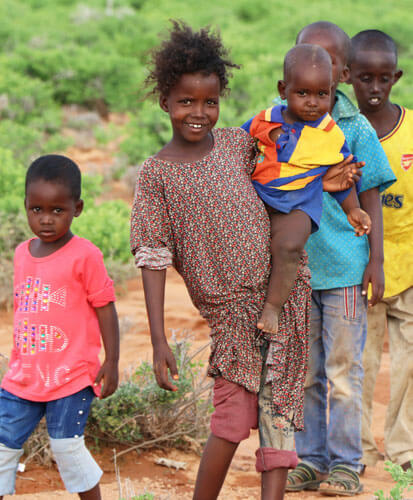Overview

Overview of Drug Abuse
Drug abuse among Nigerian youths has become a pressing issue, significantly affecting their health, social relationships, and future prospects. The prevalent substances include marijuana, codeine, tramadol, and various inhalants. The rise in drug abuse is driven by factors such as unemployment, peer pressure, lack of proper parental guidance, and socio-economic challenges.
The consequences are dire. Health-wise, drug abuse leads to mental health disorders, cognitive impairments, and increased risk of infectious diseases. Socially, it results in strained family relationships, criminal activities, and school dropouts. Economically, it perpetuates the cycle of poverty as addicted youths are unable to maintain stable employment, thereby burdening the healthcare and legal systems.
Statistics indicate a worrying trend, with a substantial percentage of Nigerian youths engaging in substance abuse. Reports from the National Drug Law Enforcement Agency (NDLEA) highlight that millions of Nigerians, primarily youths, are regular drug users. This epidemic not only jeopardizes the individuals involved but also threatens the socio-economic fabric of the nation.

Overview of Child Labour
Child labor remains a pervasive issue in Nigeria, with street hawking and domestic work being common forms. These activities significantly impact children’s physical, mental, and emotional well-being.
Street Hawking: Children engaged in street hawking often face hazardous conditions, including exposure to traffic accidents, exploitation, and abuse. The long hours spent on the streets leave little time for education, leading to high dropout rates and limiting future opportunities. Additionally, these children are at risk of malnutrition and poor health due to inadequate rest and nutrition.
Domestic Work: As domestic maids, children are subjected to arduous tasks, often working long hours for minimal pay. They are vulnerable to physical, emotional, and sometimes sexual abuse. The isolation from their families and lack of access to education hinder their personal development and future prospects.
To combat child labor, it is essential to enforce stricter laws, provide access to quality education, and create economic opportunities for families. Community awareness and support programs can also play a crucial role in protecting children and ensuring they have a brighter future

Overview of Rape/Child Molestation
Rape and child molestation are grave issues with devastating effects on victims, particularly in Nigeria where such cases are alarmingly prevalent. These heinous acts inflict severe physical, psychological, and emotional trauma on children, undermining their sense of safety and well-being.
Physical Impact: Victims often suffer from injuries, sexually transmitted infections, and unwanted pregnancies. The immediate physical consequences can require extensive medical treatment, which many may not have access to, exacerbating their suffering.
Psychological Impact: The trauma of rape and molestation can lead to long-term psychological effects, including depression, anxiety, post-traumatic stress disorder (PTSD), and suicidal tendencies. The stigma associated with sexual abuse often results in feelings of shame, guilt, and isolation, making it difficult for victims to seek help or support.
Educational Impact: The trauma can severely disrupt a child’s education. Fear, shame, and the psychological aftermath can cause poor academic performance, absenteeism, and eventually dropping out of school. This not only affects their immediate educational attainment but also limits their future opportunities and socio-economic mobility.
Social Impact: Victims of rape and molestation often face social stigmatization and rejection, further isolating them from their communities and support networks. The fear of being judged or blamed can prevent them from speaking out, perpetuating a cycle of silence and abuse.
Addressing this crisis requires a multi-pronged approach, including stringent law enforcement, comprehensive support services for victims, public awareness campaigns, and education on sexual consent and rights. Creating a safe environment where victims can speak out without fear of retribution is crucial. By empowering communities to protect and support children, we can work towards eradicating rape and child molestation and fostering a safer, more just society.

Overview of Rape/Child Molestation
Rape and child molestation are grave issues with devastating effects on victims, particularly in Nigeria where such cases are alarmingly prevalent. These heinous acts inflict severe physical, psychological, and emotional trauma on children, undermining their sense of safety and well-being.
Physical Impact: Victims often suffer from injuries, sexually transmitted infections, and unwanted pregnancies. The immediate physical consequences can require extensive medical treatment, which many may not have access to, exacerbating their suffering.

Overview of Domestic Violence
Domestic violence is a pervasive and deeply troubling issue that affects individuals and families across Nigeria. It encompasses physical, emotional, psychological, and sexual abuse, primarily within intimate relationships and families.
Physical Impact: Victims often suffer from injuries ranging from bruises and fractures to severe, life-threatening conditions. The physical abuse can lead to chronic health problems, disabilities, and in extreme cases, death
Social Impact: Domestic violence isolates victims from their support networks. The stigma and shame associated with being abused can prevent them from seeking help from friends, family, or community resources. Children who witness domestic violence are also deeply affected, experiencing emotional and behavioral problems, and are at risk of perpetuating the cycle of violence in their own relationships.
Economic Impact: Domestic violence can disrupt victims’ economic stability. Abusers often control financial resources, limiting victims’ access to money, employment opportunities, and education. This economic dependence makes it difficult for victims to leave abusive relationships and seek independence and safety.
Emotional and Psychological Impact: The emotional toll of domestic violence is profound. Victims frequently experience depression, anxiety, post-traumatic stress disorder (PTSD), and low self-esteem. The constant fear and trauma can lead to feelings of helplessness and hopelessness, severely impacting their mental health and overall well-being.
Addressing domestic violence requires comprehensive measures, including legal protection, accessible support services, public awareness campaigns, and education on healthy relationships. Strengthening law enforcement responses and providing safe shelters, counseling, and economic empowerment programs for victims are essential steps. Communities must be engaged in promoting zero tolerance for domestic violence and supporting survivors in their journey towards healing and independence. By working together, we can create a society where everyone can live free from fear and abuse.
